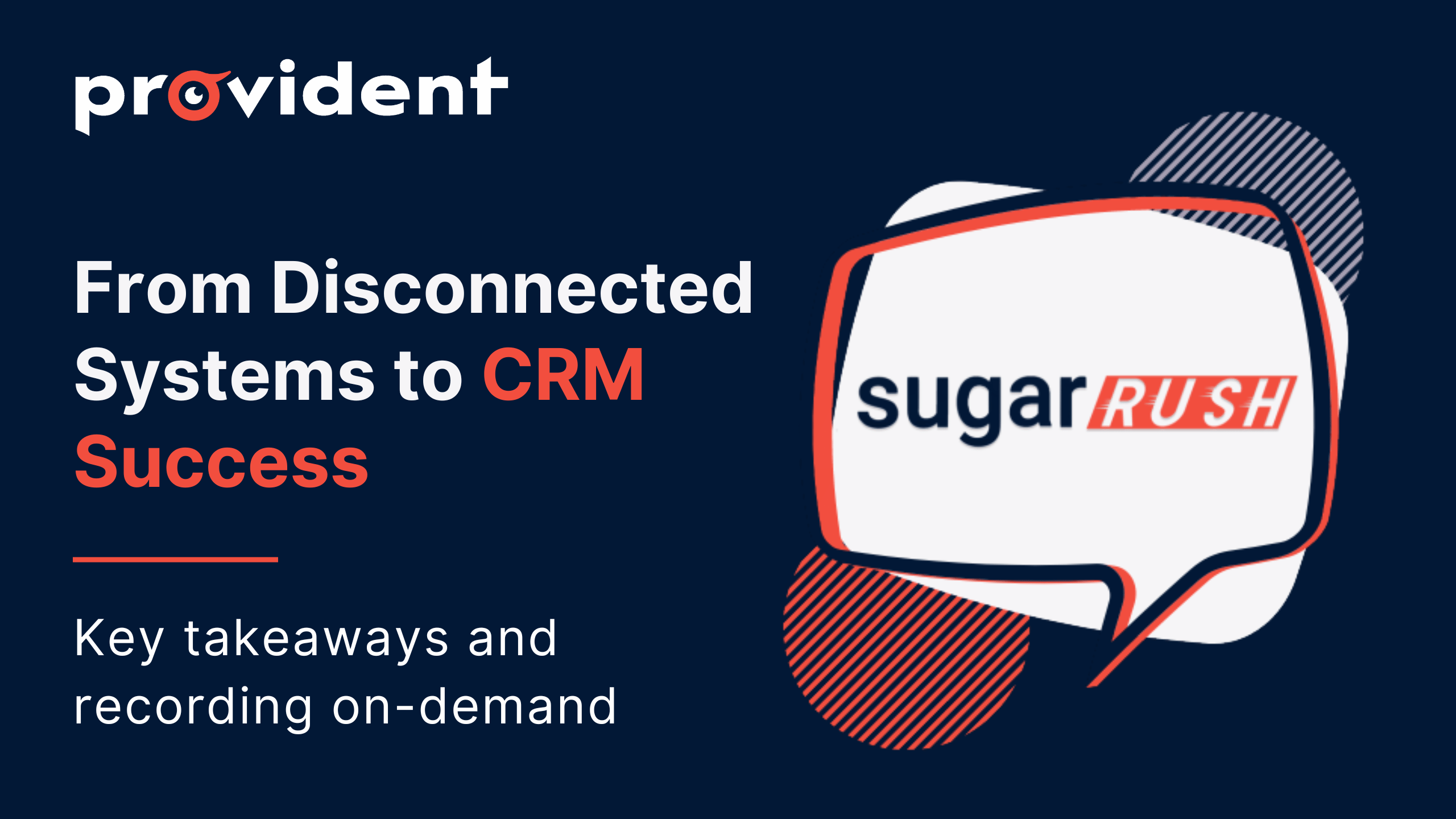
What happens when you don’t have a CRM – or when the one you have creates more work than it saves?
For Sarah Lathbury at Verplas, this challenge became the catalyst for a transformation that would ultimately win them gold at the CXA awards.
That’s why, in this SugarRush session, we explored how Verplas, leading UK manufacturer, turned CRM frustration into CRM success.
Common challenges we see include:
– CRMs that don’t reflect real business processes
– Low adoption rates across teams
– Disconnected tools and data silos
– Manual workarounds that create more errors
– High costs with little return
✅ The hidden risks of a misaligned CRM setup
✅ How Verplas transformed their customer service with SugarCRM
✅ Proven strategies to boost adoption and get teams on board
✅ Practical ways to simplify the tech stack and reduce costs
✅ The measurable ROI and customer experience improvements achieved
A CRM only works when it’s aligned with the way your business actually operates. Instead of forcing teams to adapt, the system should be mapped to your existing processes so it feels natural and supportive. Involving users early on builds buy-in and ensures the CRM is relevant to their daily work.
It’s also important to set clear, measurable goals from the start — like reducing case resolution times or improving customer satisfaction — so you can prove ROI. Above all, keep it simple. A streamlined setup avoids costly add-ons and gives teams a system they’ll actually want to use.
After implementing a CRM to manage sales activities, Sarah’s team still found themselves handling customer complaints and credit requests through separate spreadsheets and Word documents. The same data was being duplicated across multiple systems, leading to inefficiencies and delays.
Even the best-designed CRM will fail if teams don’t actually use it. Verplas recognised that what they needed wasn’t just a CRM – it had to be intuitive, relevant, and seamlessly integrated into everyday work.
What works:
1. Don’t Force Adoption – Make It Valuable
Adoption happens naturally when the system is tailored to make team members’ jobs easier and solve real, daily challenges.
2. Involve Your End Users
Regular feedback sessions, testing periods, and the ability for users to customise dashboards and views by role all foster buy-in and ownership.
3. Automate Repetitive Tasks
Automating workflows, tailoring fields, and aligning processes with real business needs reduces admin burdens and ensures the system delivers true value beyond just features.
4. Ongoing Partnership Matters
A dedicated customer success manager who understands your business and evolving requirements can recommend better approaches over time, ensuring long-term success.
If you’re looking for expert help with creating quick wins that build confidence and momentum with your systems, get in touch with our team to schedule a personalised demo.
Watch the full recording now to learn:
Click below to watch the full session recording to explore more about how SugarCRM can help you align technology with business success.